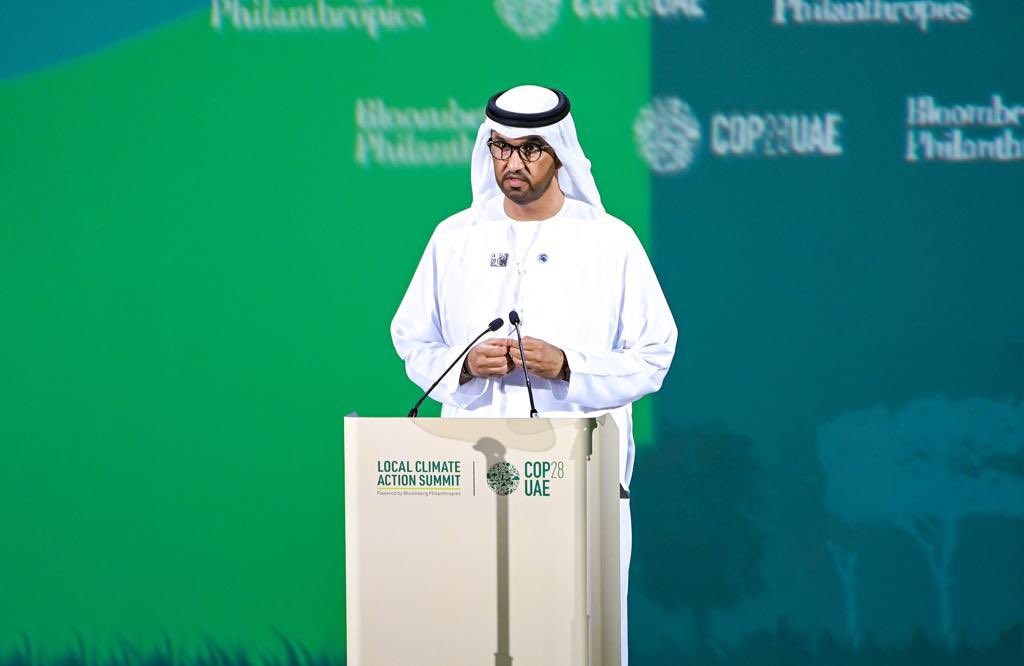Another COP summit has come and gone, and with it the usual mixed bag of pledges and promises. This was expected given that Sultan Ahmed Al Jaber, the COP28 president and UAE (United Arab Emirates)’s Special Envoy for Climate Change, is also the CEO of the state-owned ADNOC (Abu Dhabi National Oil Company).
The inevitable conflict of interest was revealed in Al Jaber’s claim that “there is no science out there, that says the phase-out of fossil fuels is what’s going to achieve 1.5°C”. This left climate scientists bewildered, considering data by the International Energy Agency (IEA)’s calls for no new fossil fuel development and reductions in coal, oil and gas by 95%, 60% and 45%, respectively, by 2050 to keep the 1.5°C limit in range.
Like Al Jaber, we are caught in the middle of a love affair with fossil fuel exploration and a global responsibility to do more and better for climate change. To reconcile our own conflict of interest, a national climate roadmap is needed to ensure what is called a “just transition”: moving to a more sustainable and green economy that is fair to everyone concerned.

An important step toward creating this roadmap is to harmonise as much as possible our non-renewable energy strategy with climate change policies. My column on November 14 drew attention to our National Climate Change Policy which was adopted in 2011. I’ve been reliably informed that this policy was updated last year and is before Cabinet for approval. Some updates are necessary to factor in COP28 negotiations as well as non-renewable energy deals.
During COP28, Prime Minister Dr Keith Rowley was in London to commemorate the signing of a new commercial structure for Atlantic LNG on December 5. Dr Rowley believes the restructured deal will lead to increased revenues from new negotiations. An OPM (Office of the Prime Minister) media release explains that “this long-awaited, unprecedented agreement will provide for the long-term sustainability of T&T’s gas sector and a higher level of certainty which is crucial for future investment”. Questions have to be asked: where does the sustainability of our green energy transition figure in all this? And, what about future investment into our climate change response?
Dr Rowley’s expectation that the restructuring agreement “enables the State to play a more in-depth role in the commercial arrangements for the marketing of LNG” comes at an inopportune time. At COP28, governments agreed to “transition away” from fossil fuels. While climate activists have called for stronger language such as “phase out”, the agreement to vaguely “transition away” is nonetheless unlike anything previously agreed at COP.
T&T’s transition turn toward LNG production might be a cleaner source of energy than coal and oil, but is far from clean when it comes to methane emissions. While the IEA has called for at least a 45% reduction in gas production, T&T is scaling up its efforts at gas exploitation. Look at the Dragon gas deal between T&T and Venezuela. Added to this are possible oil-exploration projects. In August of this year, CEO of Trinity Exploration & Production Jeremy Bridglalsingh took pride in the discovery of “virgin oil in a super-mature basin” at the company’s Jacobin-1 site in Palo Seco.
Another crucial step in the development of a national roadmap is to identify financial flows. Based on T&T’s Nationally Determined Contribution (NDC) under the Paris Agreement, an estimated US$2 billion over the period 2017-2030 is required.
One of the major successes of COP28 was the agreement on a loss and damage fund which received over US$700 million. This, however, is a fraction of the billions of dollars needed by vulnerable countries to address the impacts of disasters. There are still lingering questions about how the pledged money will be distributed. For now, the fund will be hosted by the World Bank.
This poses problems around the timely and efficient administering of funds, as well as a lack of independent governance considering that the US is the largest single shareholder of the bank, followed by Japan, Germany, the United Kingdom and France—four of the world’s seven most advanced economies. There has also been the concern that the World Bank’s typical loan-based approach to providing funds could further increase debt in poorer nations.
The nature of climate financing, with its bureaucracy and terms and conditions, is such that we should not rely on pledges from the loss and damage fund. Instead, the revenue expected from such deals as the Atlantic LNG restructuring agreement and the Dragon gas deal may have to be directed into our climate change mitigation strategy. This becomes even more critical considering there was no mention of climate funding in the 2024 budget statement.
Climate summits have gotten a bad reputation for being all-talk and little to no action. COP28 has been slightly different if only for the loss and damage fund agreement as well as language, albeit vague, that works toward a transition away from fossil fuels. T&T, with its emphasis on gas exploitation and oil exploration, must now be guided accordingly. A national roadmap that considers harmonising climate-change policies with energy strategies and climate financing that draws upon the revenues expected from oil and gas production are two areas to begin developing this roadmap.
This story was originally published by Trinidad Express with the support of Climate Tracker’s COP28 Climate Justice Reporting Fellowship.